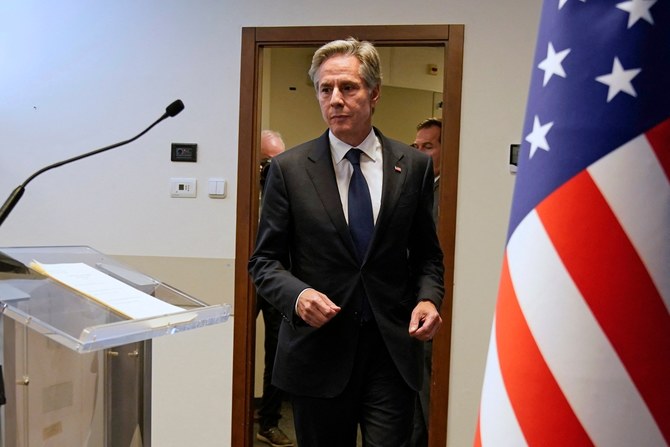Dr. Azeem Ibrahim
Twenty-eight years have elapsed since the Dayton Accords were signed and the Western Balkans are now closer than ever to a resurgence of the political violence, ethnic cleansing and mass migration that afflicted the region in the aftermath of Yugoslavia’s dissolution. Policymakers in Brussels and Washington, who once had a crucial role in negotiating and enforcing peace agreements in the Balkans, have found themselves preoccupied with fresh and imminent crises, ranging from Ukraine to Taiwan.
In recent months, the Balkan nations have witnessed a troubling surge in tensions and violence. Incidents like the clashes in northern Kosovo, confrontations between Serb paramilitaries and Kosovan police, and the buildup of Serbian troops near Kosovo have rung alarm bells. These events should serve as flashing red indicators on the Western world’s policy dashboard. It is high time to reevaluate our approach to the Balkans. What these challenges have in common is a lack of engagement from the West, particularly the EU, the US and NATO. This lack of involvement has emboldened nationalist and hegemonic forces in the region, empowering those countries with more influence. This vacuum has also created opportunities for groups, including nationalists and the far right, which oppose liberal democracy.
The first component of this lack of engagement stems from the attitude of Antony Blinken’s US State Department. The Biden administration’s shift in emphasis, from assisting global democratic struggles to preserving the democratic credentials of sliding nations like India, has led to the belief that the Balkans are inherently tribal. The result is a fading memory of a superpower willing and able to promote ideals like reducing corruption and enhancing democracy. The second component of this disengagement is an EU whose influence has waned. The hope of EU participation and eventual membership of the bloc, which bolstered its influence in the 2000s and 2010s, has all but disappeared. This decision has fundamentally altered the incentives for local political elites, fueling authoritarian leaderships, stifling economic growth and inviting capital from authoritarian countries. It has also opened the door for external actors like Russia and China to exert influence.
This vacuum has been filled by Chinese investment and Russian misinformation. While Russia’s invasion of Ukraine may have shifted the dynamics, it is too early to assume that the loss of Russian influence will automatically translate into gains for the West. The Western liberal democracies have taken their eyes off the Balkan region for far too long, resulting in a host of negative consequences. So, what should be the focus of Western policy in the Balkans in the coming years?
First, we need to go back to basic principles. The West has been successful in the past when it provided a clear and attractive vision to the region and stood behind that vision. We must articulate a vision of freedom, justice, trade, progress and peace for the Balkans, making it crystal clear how it will benefit the nations in the region. Engagement must occur at the senior level, but it should also involve outreach to the local populations, including cultural diplomacy. Furthermore, we must confront the challenge of Russian information warfare. Western information operations should remind the Balkan nations that Russia cannot be trusted, including by highlighting its failure to assist countries like Armenia and its prior involvement in the NATO-led peacekeeping mission to Kosovo before abandoning it in 2003. Investing in free media in the Balkans, especially in areas vulnerable to Russian propaganda, is also essential.
Although certain parts of the region may not be receptive to Western democracy today, the groundwork should be laid for the future. NATO should consider deploying a deterrent force in the region, beginning in areas like Brcko, Bosnia and Herzegovina. Serbia deserves special care. We cannot rely on outdated approaches and must consider the role of Serbian culture and society. Recent years have seen a surge in war crimes denials and historical revisionism. Western policy should address these underlying cultural causes of Serbia’s international orientation rather than just the symptoms. No doubt the region has faced challenges stemming from a history of political instability and conflict, but it does offer numerous opportunities for growth and development.
First, the Western Balkans boast a strategic geographic positioning at the crossroads of Europe. This location provides a gateway for trade, as well as access to the EU market, which is a key advantage for foreign investors. The region’s rich natural resources, including fertile land and mineral deposits, further contribute to its economic potential. Additionally, a young and educated workforce is available in the Western Balkans, offering a competitive advantage in sectors like information technology and services. Tourism, thanks to its stunning landscapes and cultural heritage, is another promising industry.
To fully realize the economic potential of the Western Balkans, investment in infrastructure and education and reforms to improve the business climate are essential. The EU’s commitment to assisting the region’s integration and economic growth through various programs and initiatives will also play a pivotal role in unlocking this potential. However, addressing lingering political challenges and fostering regional cooperation will be crucial for the sustainable development of the Western Balkans. In conclusion, the Balkans region is at a crossroads and renewed Western engagement is imperative. By setting out a clear and attractive vision, engaging with the region at all levels and countering external influence, we can help steer the Balkans toward a path of stability, democracy and progress. The time for action is now, and the stakes are high.







